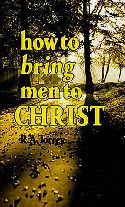Handbook of Ethics.
by Archibald Alexander
(1914)
This is a book on Christian ethics. Some of the topics in this book are Ethic, aesthetics, Socrates, Determinism, Spontaneity, Optimism, Pragmatism, Activism, and Vitalism.
CHAPTER I
THE NATURE AND SCOPE OF ETHICS…………… 9
I. General Definition. II. Distinctive Features–1. Ideal; 2. Norm; 3. Will. III. Is Ethics a Science? IV. Relation to–1. Logic; 2. Aesthetics; 3. Politics. V. Dependence upon–1. Metaphysics; 2. Psychology.
CHAPTER II
THE POSTULATES OF CHRISTIAN ETHICS…………. 22
I. Philosophical Ethics. II. Dogmatics. III. Theological Presuppositions– 1. Christian Idea of God. 2. Christian Doctrine of Sin. 3. Human Responsibility. IV. Authority and Method.
CHAPTER III
ETHICAL THOUGHT BEFORE CHRIST…………… 36
I. In Greece and Rome–Socrates, Plato, Aristotle, Stoics. Stoicism and St. Paul. II. In Israel–1. Law; 2. Prophecy; 3. Poetry. Preparatory Character of pre-Christian Morality.
SECTION B–PERSONALITY
CHAPTER IV
THE ESTIMATE OF MAN……………….. 55
I. Conflicting Views of Human Nature– 1. Man by nature Morally Good. 2. Man by nature Totally Depraved. 3. The Christian View. II. Examination of Man’s Psychical Nature– 1. The Unity of the Soul. 2. The Divine in Man. 3. The Physical and Mental Life. III. Appeal of Christianity to the Mind.
CHAPTER V
THE WITNESS OF CONSCIENCE…………….. 68
I. Treatment of Conscience– 1. In Greek Poetry and Philosophy. 2. In Old Testament. 3. In New Testament. II. Nature and Origin of Conscience– 1. Intuitionalism. 2. Evolutionalism. III. Validity of Conscience– 1. The Christian View. 2. The Moral Imperatives. 3. The Permanence of Conscience
CHAPTER VI
‘THE MIRACLE OF THE WILL‘…………….. 82
Is Man free to choose the Good? Creative Power of Volition. Aspects of Problem raised. I. Scientific– Man and Physical Necessity. II. Psychological– Determinism and Indeterminism. Criticism of James and Bergson. Spontaneity and Necessity. III. Theological– Divine Sovereignty and Human Freedom. Jesus and Paul–Challenge to the Will. Freedom–a Gift and a Task.
SECTION C–CHARACTER
CHAPTER VII
MODERN THEORIES OF LIFE……………… 99
I. Naturalistic Tendency– 1. Materialistic– (1) Idyllic or Poetic–Rousseau. (2) Philosophic–Feuerbach. (3) Scientific–Haeckel. 2. Utilitarian–Hobbes, Bentham, Mill. 3. Evolutionary–Spencer. 4. Socialistic–Marx, Engels. 5. Individualistic– (1) Aestheticism–Goethe, Schiller. (2) Subjectivism– (a) Pessimism–Schopenhauer. (b) Optimism–Nietzsche. II. Idealistic Tendency– 1. Kant–Categorical Imperative. 2. Fichte and Hegel–Idea of Personality. 3. James–Pragmatism. 4. Bergson–Vitalism. 5. Eucken–Activism.
CHAPTER VIII
THE CHRISTIAN IDEAL………………. 127
Life, as the highest Good. I. Life, in its Individual Aspect– 1. Its Intensity. 2. Its Expansion. 3. ‘Eternal Life.’ II. Life, in its Social Aspect– 1. ‘The Kingdom of God’– Eschatological Interpretation. Untenableness of Interimsethik. 2. Christ’s View of Kingdom– (1) A Present Reality–a Gift. (2) A Gradual Development–a Task. (3) A Future Consummation–a Hope. III. Life, in its Godward Aspect– 1. Holiness. 2. Righteousness. 3. Love.
CHAPTER IX
STANDARD AND MOTIVE……………….. 146
I. Christ as Example– 1. Portrayal by Synoptists– (1) Artlessness of Disciples. (2) Naturalness of Jesus, 2. Impression of Power– (1) Power of Loyalty to Calling. (2) Power of Holiness. (3) Power of Sympathy. 3. Value of Jesus’ Example for Present Life– Misconception of Phrase ‘Imitation of Christ.’ II. The Christian Motive– 1. Analysis of Springs of Conduct– (1) Divine Forgiveness. (2) Fatherhood of God. (3) Sense of Vocation. (4) Brevity of Life. (5) Idea of Immortality. 2. Question as to Purity of Motive– (1) Charge of Asceticism. (2) Charge of Hedonism. 3. Doctrine of Rewards– (1) In Philosophy. (2) In Christianity–(a) Jesus; (b) Paul.
CHAPTER X
THE DYNAMIC OF THE NEW LIFE……………. 164
I. Divine Power– Operative through Christ’s 1. Incarnation and Life. 2. Death and Sacrifice. 3. Resurrection and Indwelling Presence. II. Human Response– 1. Repentance– (1) Contrition–Confession–Resolution. (2) Question of ‘Sudden Conversion.’ (3) ‘Twice Born’ or ‘Once Born.’ 2. Faith– (1) In Ordinary Life. (2) In Teaching of Jesus. (3) The Pauline Doctrine. 3. Obedience– (1) Active Appropriation of Grace. (2) Determination of Whole Personality. (3) Gradual Assimilation.
SECTION D–CONDUCT
CHAPTER XI
VIRTUES AND VIRTUE………………… 183
Definition of Virtue. I. The Natural Basis of the Virtues– ‘The Cardinal Virtues.’ II. The Christian Transformation of the Virtues– 1. The New Testament Account. 2. Cardinal Virtues, Elements of Christian Character. 3. Place of Passive Virtues in Life. III. The Unification of the Virtues– 1. Unity in Relation to God. 2. Love, Spring of all Virtues, 3. ‘Theological Virtues,’ Aspects of Love.
CHAPTER XII
THE REALM OF DUTY………………… 199
I. Aspects of Duty– 1. Duty and Vocation. 2. Conflict of Duties– (1) Competing Obligations. (2) ‘Counsels of Perfection.’ (3) Indifferent Acts. 3. Rights and Duties– (1) Claim of ‘Natural Rights.’ (2) Based on Worth of Individual. (3) Christian Idea of Liberty. II. Spheres of Duty– 1. Duties in Relation to Self– (1) Self-Respect. (2) Self-Preservation. (3) Self-Development– Self-regarding Duties not prominent in Scripture. Self-Realisation through Self-Sacrifice. 2. Duties in Relation to Others– (1) Regard for Man: Brotherly Love– (a) Justice. (b) Veracity. (c) Judgment. (2) Service– (a) Sympathy. (b) Beneficence. (c) Forgiveness. (3) Example and Influence. 3. Duties in Relation to God– (1) Recognition. (2) Obedience–Passive and Active. (3) Worship–Reverence, Prayer, Thanksgiving.
CHAPTER XIII
SOCIAL INSTITUTIONS………………. 230
I. The Family– 1. Origin and Evolution of Family. 2. Christian view– (1) Christ’s Teaching on Marriage. (2) State Regulation and Eugenics. (3) Tendencies to Disparagement. 3. Family Relationships– (1) Parents and Children. (2) Woman’s Place and Rights. (3) Child Life and Education. II. The State– 1. Basis of Authority– Tolstoy and Anarchism. ‘Social Contract.’ 2. State, in New Testament. 3. Modern Conceptions– Views of Augustine and Hegel. (1) Duty of State to Citizens. (2) Duty of Citizens to State. (3) The Democratic Movement– Reciprocity of Service and Sense of Brotherhood. III. The Church– 1. Relation of Church and State. 2. Purpose and Ideal of Church– (1) Worship and Edification. (2) Witness to Christ. (3) Evangelisation of Mankind. 3. The Church and the Social Problem– (1) Christ’s Teaching as to Industry and Wealth. (2) Attitude of Early Church to Society. (3) Of Roman and Reformed Churches. 4. Duty of Christianity to the World– The Missionary Imperative and Opportunity.
CHAPTER XIV
CONCLUSION–THE PERMANENCE OF CHRISTIAN ETHICS……. 245
BIBLIOGRAPHY…………………… 248
INDEX……………………… 263
Post Views: 127
MySwordmodules is a website dedicate to the MySword Bible Program for Androird devices. We host MySword Modules.

Helping Returning Missionaries are my thoughts and suggestions for missionaries returning on furlough to the States, also those on deputation.
Topics: How are we helping returning missionaries? | Let me put forth my mindset. | Coming Home and Culture Shock | The Problems of Cyber Space and Missionaries | Stick to Standard Forms of Communication | You can Help Returning Missionaries by understanding their lifestyle | More Lifestyle Differences | Helping Missionaries with Dental, Eyecare, Medical Care | Churches can help Returning missionaries - Housing | Small stuff | Get expert Advice | My Best Experiences with Visiting a Church as a Missionary Speaker.
Read the Article: Helping Returning Missionaries.




there is no download link…
I added Alexander-Handbook of Christian Ethics link. Try it now. Thanks for bringing it to my attention.